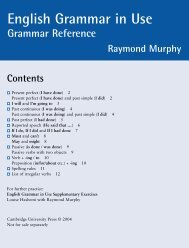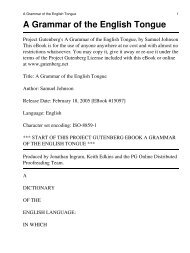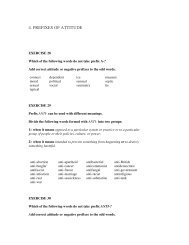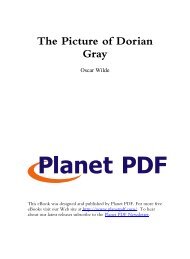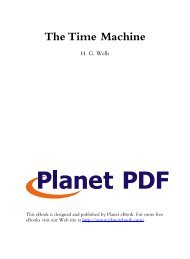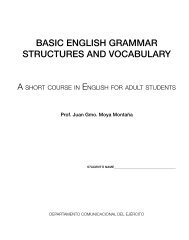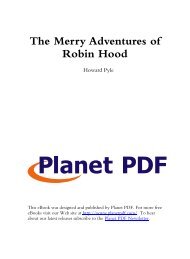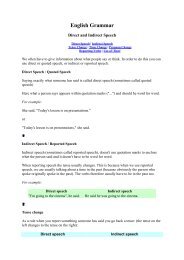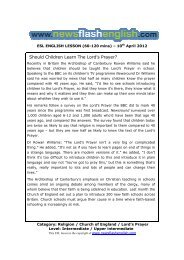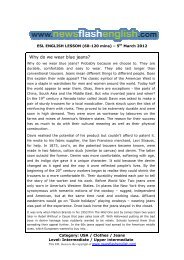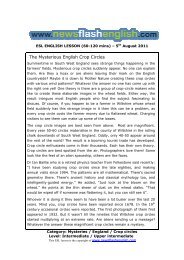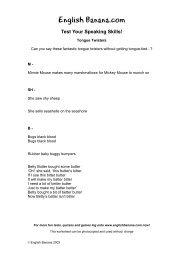TO DOWNLOAD - 75 Pages (928kb - PDF format) - ESL Teachers ...
TO DOWNLOAD - 75 Pages (928kb - PDF format) - ESL Teachers ...
TO DOWNLOAD - 75 Pages (928kb - PDF format) - ESL Teachers ...
You also want an ePaper? Increase the reach of your titles
YUMPU automatically turns print PDFs into web optimized ePapers that Google loves.
USAGE/MECHANICS5B Question markA question mark indicates the end of a direct question. Aquestion mark in parentheses signals doubt or uncertaintyabout a fact such as a date or a number.Use a question mark after a direct question.EXAMPLES:When are we going to eat?Ask yourself, what are the odds of winning?(It is also correct to capitalize the word what.)A question mark in parentheses may be used to expressdoubt.EXAMPLE:The Dean's notes, published in 1774 (?), areconsidered the novel's origin.NOTE:The use of the question mark as a mark of irony or sarcasmis not usually considered proper: The superintendent'simportant (?) announcements took all morning.Rules regarding the use of the question mark are unlikelyto cause you trouble. Problems mainly occur (a) becauseof failure to distinguish between direct and indirect questions(an indirect question is always followed by a period:My friend asked why I didn't have my car.) or (b)because of mistaken combination of question marks withother punctuation marks. A question mark should neverbe combined with a comma, period, exclamation point,or other question mark. Most often, the question markassumes the functions of other marks.5C Exclamation pointAn exclamation point is an indicator of strong emotionalfeelings, such as anger, joy, shock, surprise, or fear. Itmay also be used to express irony or emphasis. Like thedash, it should be used sparingly.Use an exclamation point after a command, an interjection,an exclamation, or some other expression of strong emotion.COMMAND:Stop!INTERJECTION:Wow! Fire! Help!EMOTIONAL EXPRESSION:Don't tell me you did it again! How wonderful!An exclamation point should not be used with commas,periods, other exclamation points, or question marks.6 QUOTATION MARKS,PARENTHESES, AND ITALICSalso used to enclose the titles of short literary or musicalworks (articles, short stories or poems, songs), as well aswords used in a special way.EXAMPLE:"Ozymandias" by Percy Bysshe Shelley is anexample of an Italian sonnet.Enclose direct quotations in quotation marks.EXAMPLE:"We will wage war wherever if takes us," WinstonChurchill pledged.Quotation marks should enclose only the exact words ofthe person quoted.EXAMPLE:Winston Churchill pledged that "we will wage warwherever it takes us." [NOT...pledged "that wewill...")NOTE:When a quoted sentence is interrupted by a phrase suchas he said or she replied, two pairs of quotation marksmust be used, one for each part of the quotation. The firstword of the second part of the quoted material should notbe capitalized unless it is a proper noun or the pronoun /.EXAMPLE:"There are two sorts of contests between men,"John Locke argued, "one managed by law, theother by force."NOTE:When a quotation is a structural part of the sentence, itbegins with a lowercase letter, even though the originalquotation is a separate sentence beginning with a capital.EXAMPLE:F.D.R. told a worried nation that "there is nothingto fear but fear itself."However, when the quotation is not structurally integratedwith the rest of the sentence, the initial letter is capitalized.EXAMPLE:F.D.R.'s sage words of wisdom, "There is nothingto fear but fear itself," soothed a worried nation.Commas and periods always belong inside quotationmarks; semicolons and colons, outside. Question marksand exclamation points are placed inside the quotationmarks when they are part of the quotation; otherwise,they are placed outside.EXAMPLE:What did he mean when he said, "I know theanswer already"?"The case is closed!" the attorney exclaimed.6A Quotation marksOne of the main uses of quotation marks is to signal theexact words of a writer or speaker. Quotation marks are6




